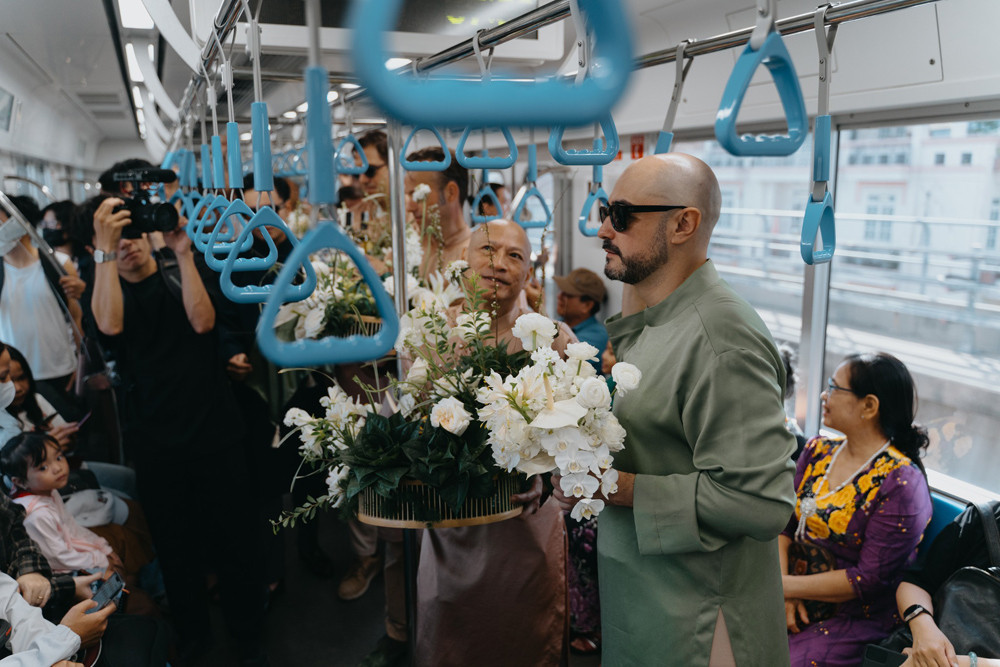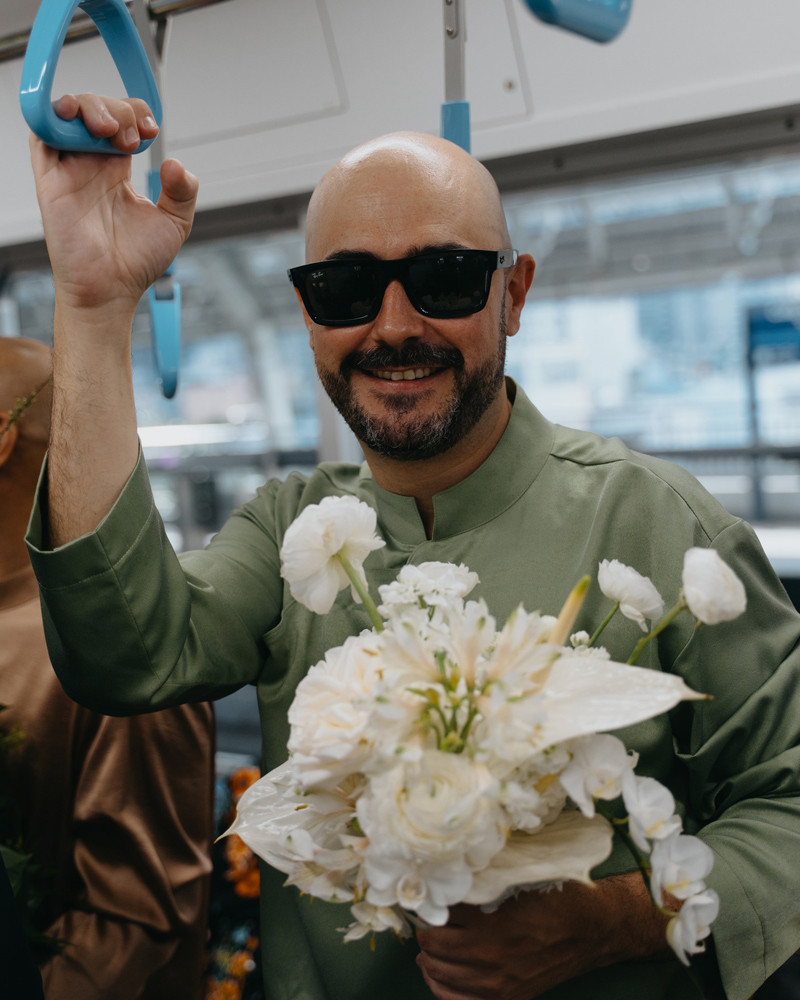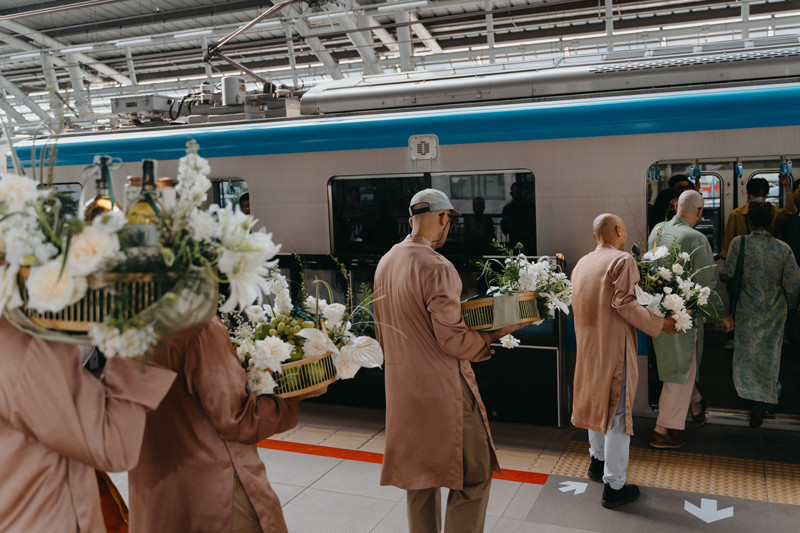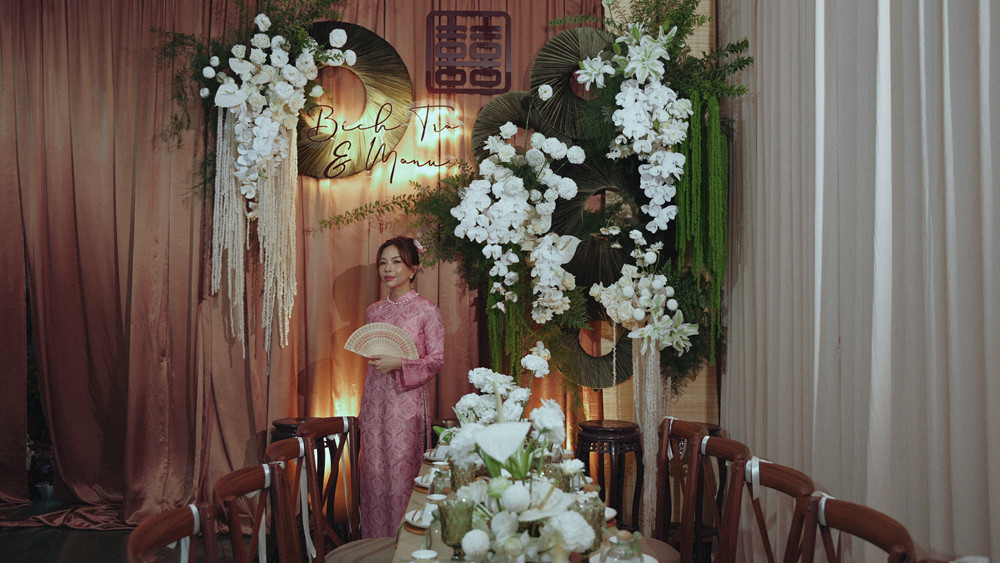Sharing a love for cultural experiences and all things unique, Tran Thi Bich Tra and her Spanish husband Manu Menendez wanted to create something special for their Vietnamese wedding ceremony. The couple had previously held a wedding in Spain with close friends and family.
When Tra confided her hopes for a memorable Vietnamese celebration, her friend Tran Hung - who also owns a wedding planning business - half-jokingly suggested, “Why not arrive by metro?”
“I threw that idea out while a bit tipsy and didn’t expect them to take it seriously,” Hung recalled. “But they loved it, so we committed to creating a meaningful and unforgettable wedding for them.”
To Tra, the idea was both fresh and exciting. She envisioned a wedding that blended tradition with a modern twist, providing a remarkable and joyful experience in the heart of Ho Chi Minh City.
Tra and her husband live in Thao Dien Ward, Thu Duc City. Before the wedding, Tra returned to her mother’s home in Tan Binh District, while the groom’s family - 15 members in total - stayed at the couple’s residence.
Dressed in ao dai and carrying floral arrangements and traditional gift trays, the groom’s party eagerly awaited the auspicious hour to begin the bride procession.
“We explained in detail the meaning behind the ceremonial trays and Vietnamese wedding rituals so the groom’s side could better understand the traditions. They were genuinely intrigued and excited,” Hung shared.
To ensure everything went smoothly, Hung and his team visited the metro station three times beforehand. They timed the train arrivals, door openings, and overall travel schedule to make sure the entire group could board together without any hiccups. They also contacted the metro operator to request support and permissions for the unusual event.
On the morning of April 12, the groom’s party walked to Thao Dien station and took the train to the Opera House station in District 1. From there, they continued the procession in a rented double-decker bus to the bride’s home, where a traditional ancestral ceremony and lunch were held. That evening, the wedding reception took place outdoors in Thao Dien, where the couple resides.
The day unfolded with all the essential Vietnamese traditions, along with light-hearted, modern interactions.
“On the way to the bride’s house, from the moment we boarded the metro to when we switched to the double-decker bus, the wedding party drew a lot of attention. Some passengers even offered their congratulations,” Hung said.
Although she wasn’t on the metro ride, Tra felt the excitement through the stories shared by her husband and in-laws.
She herself found the idea of using public transport for a wedding procession to be fun, unique, and an excellent way to offer the groom’s family a memorable experience.
“In everything they do, Spaniards love doing things together,” she explained. “Instead of splitting into separate cars, traveling together by metro and bus made my husband’s family happier.
And on a hot day like that, it was such a relief to avoid traffic jams and air pollution. Everyone felt much more comfortable.”
The unconventional wedding procession was also cost-effective. Metro tickets for the groom’s side cost under $8 in total. The one-hour rental of the double-decker bus was $260. Decorations were kept simple to match the tone.
Tra and Menendez met through a dating app. They immediately clicked in terms of personality, communication style, and food preferences. They’ve now been together for four years.


 |
 |

 |
 |
 |
 |

Photos: The MOB Media, Vuvu Decor
Thanh Minh